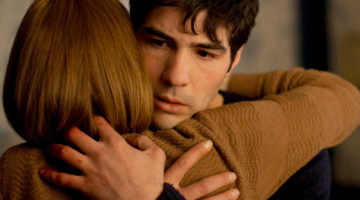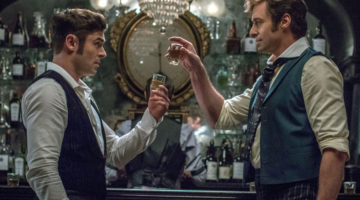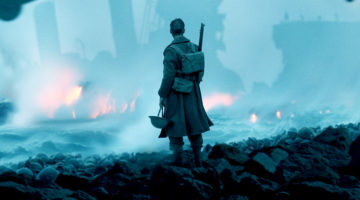Review: Ant-Man
The difficulty of the post-credit sequence is that far too often the film hints at stories and events that stories and events that hint at something more interesting and exciting than the film which the audience is currently watching.
When a post-credit sequence, or “bumper” is used effectively, like in the film Ferris Bueller’s Day Off, it often enhances the action already seen on screen, and provides a reasonable and memorable “coda” to the film, which is another term for a post-credit scene in the first place.
In a film like Ant-Man, the two post-credit sequences feel unfair, like they are simply hinting at the greatness to come, rather than focusing upon the interesting elements that are in play in the current production. Which is a shame because there are elements of the Peyton Reed-directed Ant-Man which see an enhanced experience, and a break from typical superhero origin stories. But far too often, Ant-Man descends into the clichés of how a superhero movie needs to look at feel, and this sense of being “by the book” rather than allowing the film to be “comic” tends to make the movie feel rote and rehearsed, rather than free from the mold.
How much of this transformation is because of Reed and co-writer Adam McKay, versus the amount that was left in by original co-writers Edgar Wright and Joe Cornish is impossible to speculate upon. But one aspect of Ant-Man is clear: when the film is comic, it works to near-epic proportions, but when it hews to what a superhero film needs to be, it is something of a letdown. In other words, it tries to go big when it would have been just as fine to go small.
This contradiction is inherent almost from the film’s opening scene, in which familiar faces both young and old pop up in the film seeming to start in media res. This jump into the action is a welcome change of pace from the typical languid build-up and creates a paradigm shift that becomes further enhanced when a buff Scott Lang (Paul Rudd) receives an introduction in the way of a bizarre jailhouse ritual upon exiting prison. The scenes of Lang out of prison, stuck in his old ways, but wanting to be free achieve a sort of comic tone that becomes even funnier when the principles involved are actors known for their offbeat comedy, (Gregg Turkington, also known as Neil Hamburger provides a strange supporting turn as Lang’s boss at Baskin Robbins), in a series of truly funny sequences.
But alas, the film feels the need to return to typical superhero story, which necessitates the need for Rudd to act like a reluctant hero initially, and some fairly typical stock narratives, found not only in superhero films, but in many generic comedies, (Michael Douglas as estranged creator of Pym Technologies, Canadian Evangeline Lilly as his daughter Hope Van Dyne, replete with silly hair, Corey Stoll as a rather conventional villain Darren Cross, who played this type of role ten times better on House of Cards). All of the Jungian archetypes are in place, including a seemingly shoehorned-in plot about Lang wanting to be a better father to his adorable daughter Cassie (Abby Ryder Fortson), despite the blockade provided by the always welcome Judy Greer and Bobby Cannavale, here fairly wasted as Lang’s ex-wife Maggie and her new fella Paxton, respectively.
At the risk of following all of the familiar tropes, a kind of Greek chorus emerges, or better yet, a riff on the Mechanicals from Shakespeare’s A Midsummer Night’s Dream. The players are not typically known for their comic chops, and yet they manage to steal every scene in which they appear, and moreover, manage to set the action in motion and incorporate the cameo that is absolutely necessary.
This motley crew consists of Tip “T.I.” Harris, Wood Harris, David Dastmalchian, and in a performance that seems to come out of the ether, Michael Peña, who in a movie so focused upon theft, manages to steal every scene. There are three running gags at play, one about gossip, done in an amusing style, another about whistling a familiar tune, and a third about the necessity of wearing a uniform. The safe-cracking team is funny, Peña funnier still, (clearly the Nick Bottom of this team), and Rudd seeming to be having so much of a good time that he seems loath to return to the movie at hand.
In a film of the comic and the tragic (what could have been), Ant-Man too often chooses to remain in the midd(ling).
[star v=3]





